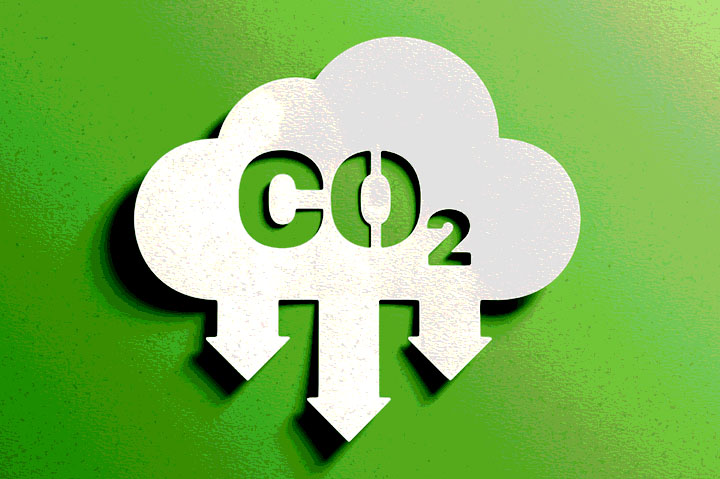Sustainability October 05, 2023
Sustainable Apparel Coalition Launches Carbon Reduction Program
The organization, which counts suppliers including SanMar, HanesBrands and Gildan among its members, wants to help manufacturers set and reach science-aligned emissions-reduction targets.
The Sustainable Apparel Coalition (SAC) is working to help its members achieve ambitious carbon emissions reductions.
The SAC – which includes Top 40 supplier SanMar (asi/84863), HanesBrands (asi/59528) and Top 40 supplier Gildan (asi/56842) among its members – launched the Manufacturer Climate Action Program (MCAP) at its annual meeting in Boston last week. Collaborating with Nike and Target, the SAC said MCAP is a critical component of its Decarbonization Program, designed to catalyze support and drive the sector toward CO2 emissions reductions.

“As a convener of the consumer goods industry, we have a unique opportunity to rally our community’s collective strength and drive transformative change to set science-aligned targets, averting the worst climate impacts,” said Joyce Tsoi, director of collective action programs at the SAC.
According to the SAC, the textile and apparel industry faces the urgent need for collective action to significantly reduce global CO2 emissions by 45% by 2030 from its 2010 baseline, ultimately striving for net-zero emissions by 2050. MCAP strives to help manufacturers with decarbonization by creating an intermediate pathway to measure emissions and develop science-aligned targets for Scope 1 and 2 emissions. Scope 1 emissions are direct greenhouse gas emissions that occur from sources controlled or owned by an organization; Scope 2 are indirect emissions associated with the purchase of electricity, heating and cooling, according to the U.S. Environmental Protection Agency (EPA).
MCAP currently excludes Scope 3 measurements – those emissions that occur up and down a company’s value chain that it doesn’t have direct control over – because the SAC says they often create a barrier for manufacturers taking steps toward setting science-aligned targets. Starting with Scope 1 and 2, the organization says, will “provide manufacturers with a manageable starting point for their decarbonization journey.”
MCAP will enable manufacturers to reduce energy use, save money and meet the business expectations of their customers, according to the SAC. The program has four core elements:
- First, manufacturers set, validate and disclose company-wide science-aligned emission-reduction goals.
- Second, manufacturers receive recommendations and training on developing climate risk assessments for their operations, including physical and transition risks, documenting these risks to bridge connections with value chain partners.
- Third, manufacturers receive guidance for developing their decarbonization plans, responding to the industry’s growing call for transparency and enabling effective allocation of resources.
- Finally, MCAP encourages manufacturers to disclose their progress annually and share reports publicly. The SAC says the commitment to openness will help ensure accountability and nurture a collective culture of growth and innovation.
MCAP evolved from both Target’s Supplier Engagement Program and the Supplier Climate Action Program (SCAP), which was co-developed by Nike and its suppliers and in consultation with the World Resource Institute (WRI). It’s open to both SAC members and non-members – an effort to help accelerate the number of manufacturers with science-aligned targets. The SAC says it is actively gathering manufacturer interest in MCAP and plans to begin implementing the program in 2024. MCAP progress will be tracked and shared on the SAC website.
Promo suppliers that are SAC members have already begun taking comprehensive steps to reduce emissions. SanMar, for example, announced a plan last year in partnership with SBTi to reduce its Scope 1 and Scope 2 GHG emissions by 50% per pound of product by 2030, with 2019 being the base year. The Issaquah, WA-headquartered apparel company also aims to cut Scope 3 GHG emissions from purchased goods and services by 50% during the same timeframe.
HanesBrands has committed to reducing Scope 1 and 2 emissions by 50% and Scope 3 emissions by 30% by 2030, according to its sustainability site.
Gildan, in a standalone climate change disclosure report released in January, detailed plans to reduce Scope 1 and Scope 2 GHG emissions by 30% by 2030, compared to a 2018 baseline.

Promo for the Planet is your destination for the latest news, biggest trends and best ideas to help build a more sustainable and socially-responsible industry.
